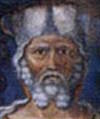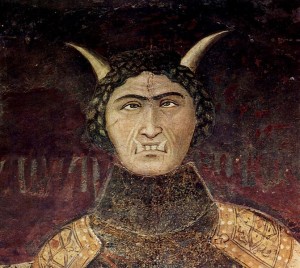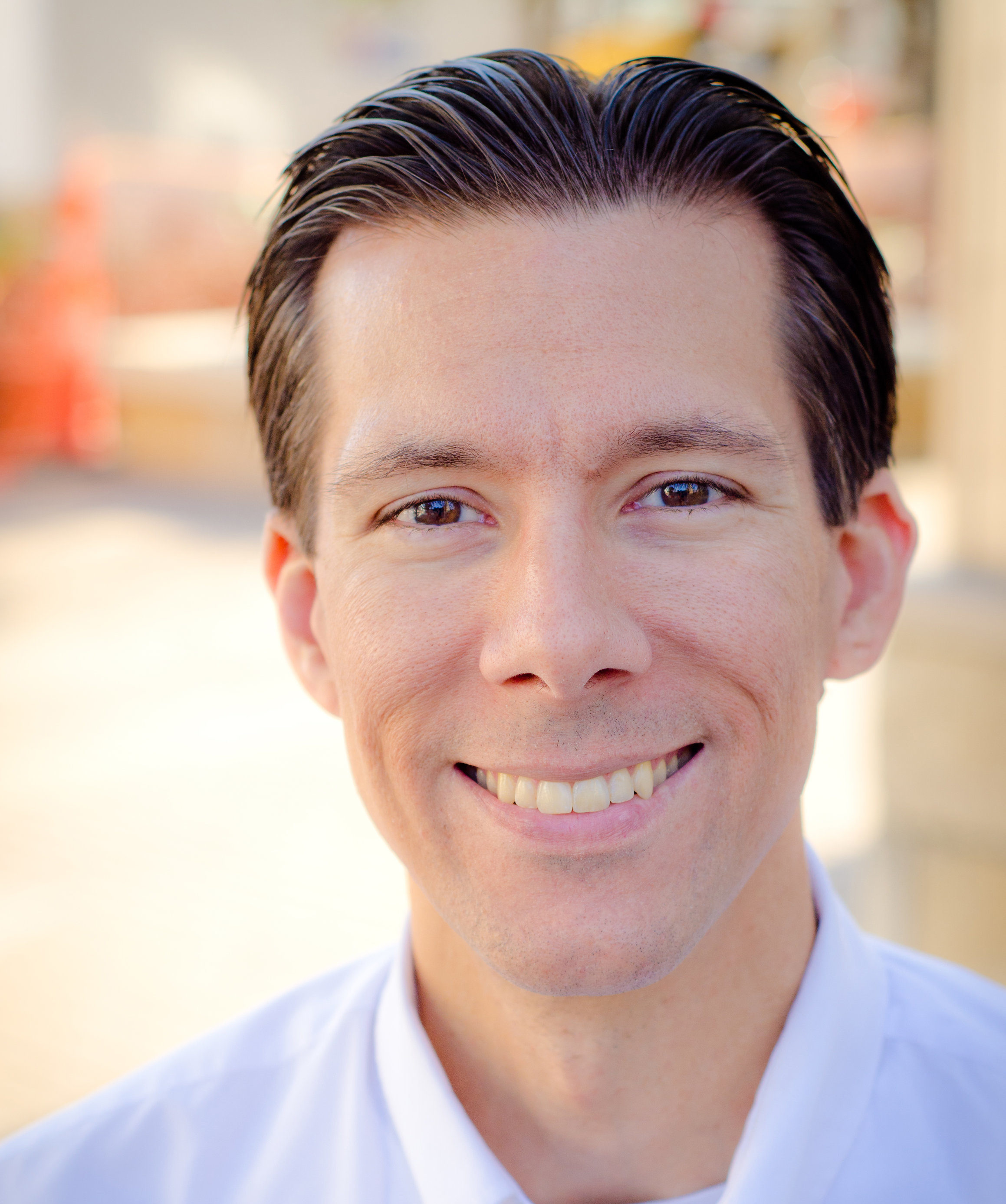 Is there such a thing as a Christian approach to foreign policy? What are the guiding principles? How should Christians think about the exercise of state power abroad? These are important questions because we live in the United States—the most powerful nation in recorded history. While Christians in any country and any era might profitably think about the implications of Christian faith for political authority, thinking Christianly about how American power should—and should not—be used is far more consequential. It is impolite to say so, but power matters – and we have lots of it. The right exercise of power is a great blessing; its abuse, a terrible curse. William Wilberforce’s Christian faith led to freedom for millions of slaves throughout the world not because he was a saint, but because he was a powerful man—an elected member of Parliament in the strongest and richest nation of his day.
Is there such a thing as a Christian approach to foreign policy? What are the guiding principles? How should Christians think about the exercise of state power abroad? These are important questions because we live in the United States—the most powerful nation in recorded history. While Christians in any country and any era might profitably think about the implications of Christian faith for political authority, thinking Christianly about how American power should—and should not—be used is far more consequential. It is impolite to say so, but power matters – and we have lots of it. The right exercise of power is a great blessing; its abuse, a terrible curse. William Wilberforce’s Christian faith led to freedom for millions of slaves throughout the world not because he was a saint, but because he was a powerful man—an elected member of Parliament in the strongest and richest nation of his day.
I approach this subject as a participant as well as a scholar. As a former Army officer, a veteran of the war in Afghanistan, an intelligence analyst with the CIA, a staffer on the National Security Council for Presidents George W. Bush and Barack Obama, I have witnessed and been a party to the awesome power of the United States firsthand. I have also seen its bumbling incompetence, its foolishness, and, occasionally, its arrogance and vindictiveness.
That means I approach this subject not with a feigned objectivity or with the pose of the critical outsider. Some Christians approach politics with a “prophetic” stance, by which they mean distancing themselves from the community, refusing to identify with it, so as to better protect the purity of their voice. This, I think, misreads the prophets. They felt themselves outside the community because the nation’s sins had distanced it from God; but they remained committed to Israel’s national ideal of a people set apart for God. The prophets remained with Israel and spoke to Israel. They did not renounce their citizenship or move abroad so as to speak their prophecies, pure and unadulterated, from afar.
Even as I hope my comments on American foreign policy are rigorous and “objective”—in the sense that I hope my loyalties and beliefs do not cause me to misread the evidence, ignore facts, or whitewash our sins—I am an American. I hope and pray for the United States. I desire my government to rule justly, and I fervently hope that we use our historically unprecedented power for more good than evil. Again, some Christians are uncomfortable with the whole-hearted embrace of national identity because “our citizenship is in heaven.” But to forsake our worldly identities and treat them as unimportant in light of eternal truths is to neglect an important part of our Christian duty: to love our neighbors, to pray for the city in which we sojourn, to cultivate the little patch of garden God has entrusted to us.
When Christians think about foreign policy, they often gravitate to specific moral issues: religious freedom, the plight of refugees, human trafficking, human rights, or, often, the defense of Israel. I want to suggest that, while these causes are individually worthy, they do not come close to exhausting what a “Christian view” of foreign policy might look like. In fact, engaging only with specific, morally-charged issues puts Christians into a niche—easily ignored and, worse, easily manipulated. Policymakers can choose to drum up Christian concern for human rights abroad when they need public support, but otherwise ignore our concerns.
I want to suggest that a “Christian view” of U.S. foreign policy should be much broader than any one cause and that concerning ourselves only with moral crusades risks turning legitimate public engagement into moralism, with all the attendant problems of self-righteousness, utopianism, naiveté, and unintended consequences. Rather, when Christians think about government, we should appreciate human sinfulness and human dignity; we should keep our eyes on both the imperative to pursue justice and our own sinfulness and limitations. We should steer a middle course between naïve utopianism and cynical realpolitik. Christian political engagement should be driven by an ethic of responsibility, of faithful presence.
II. Power Bearers
America is powerful: politically, culturally, economically, and militarily. After the Cold War, America’s dominance of the world stage was so commanding that scholars invented a new word for it: unipolarity. (The French invented another, calling us the “hyperpower.”) The international system, dominated for so long by a multiplicity of powers, or, during the Cold War, by two, was now seemingly dominated by a single state in a way no other state had done since Rome—and even then, Rome only dominated Europe and a few adjoining territories. There simply is no precedent for American power in history. We cannot overstate the importance of thinking about how to use this power well and wisely and how to keep its use within proper boundaries, restrained and accountable.
What does the Bible say about power, specifically about the power of political authority on the international stage? To begin with, we must start with what the Bible says about the bearers of power: that is, people. Unique among worldviews, the Bible portrays a complex, almost contradictory, view of human beings. Genesis 1 tells us that we are made in God’s image—a mysterious but evocative phrase that suggests human beings are, in some respect, like God himself; an astonishing, audacious claim that is very nearly indefensibly arrogant, except for the fact that we are told that God himself has made it so.
How do we image God? The Genesis account suggests that part of our imaging of God is our writ to exercise dominion over his world. God’s first command to humanity was to “be fruitful and multiply and fill the earth and subdue it” (Genesis 1:28). God placed Adam, not randomly on a patch of wild earth, but deliberately in the Garden of Eden, a special place within creation that God had designed for human habitation and flourishing. And he commanded Adam to “work and keep it” (Genesis 2:15). We become partners with the Lord himself, continuing the work of caring for, shaping, using, and growing his creation. Human beings are God’s vice-regents, sub-sovereigns with his delegated authority, commissioned to rule on his behalf. We image God when we engage in creative labor, wielding productive power over this world and all creation.
Originally, then, power is good. God is powerful; we are made in his image; therefore, we are made to be power-wielders. Using power as God intended is literally the purpose of our lives. Power is necessary; power is productive. The postmodernists were right: every human act is an exercise of power, and every human endeavor involves the use of power. They were wrong to assume that every exercise of power is wrong. Teachers have power over students, and turn them into educated adults. Parents have power over children, and turn them into disciplined and mature human beings. Governments have power over people, and create the possibility of justice and ordered liberty. The ability of human beings to wield power in creative and beautiful ways accounts for all the accomplishments of human civilization—the arts and sciences, the works of literature, the great cities, and the acts of saints and statesmen.
III. The Power of Sin
But of course we know the next part of the story. Human beings rebelled against God and corrupted themselves. “The Lord saw that the wickedness of man was great in the earth, and that every intention of the thoughts of his heart was only evil continually” (Genesis 6:8). King Solomon wrote “There is not a righteous man on earth who does what is right and never sins.” Further on, in the seventeenth chapter of Jeremiah the prophet wailed, “The heart is deceitful above all things and desperately sick; who can understand it?” In the New Testament, Paul wrote that sinners’ “thinking became futile and their foolish hearts were darkened,” while even the faithful only “see through a glass darkly.” The Biblical view of mankind is that he is ignorant and foolish at best, downright bestial and wicked at worst.
This is not a uniquely Jewish or Christian view. Plato wrote in the Republic about the “beast within” man—his passions—which when given free rein will drive him almost literally mad. For a man led by his passions, “there is no conceivable folly or crime,” including incest and parricide, that “a man may not be ready to commit.” Even Aristotle, a thinker with a much sunnier view of man, was acutely aware that men’s conceptions of justice were shaped by their self-interest. The rich and the poor define justice in ways most favorable to themselves—the poor advocating for equity of distribution, the rich for equity of merit.
Even recent social science has gravitated away from the naïve and simplistic rational actor or behaviorist models of human nature. Empirical research about how humans actually behave and make decisions has led towards a more complex description of human beings whose professions of objective reasoning are limited by bounded rationality, misperception, imperfect information, cognitive bias, wish-fulfillment, and self-delusion.
Simply put, all human beings are capable of malice, irrationality, ignorance, stupidity, cowardice, and sheer barbarity. Different traditions of thought—religious and secular, speculative and scientific, ancient and modern—have come to some version of the same conclusion: people are generally stupid and evil. Most importantly, the human capacity for stupidity and evil is something fixed and unchangeable, absent divine intervention. This view differs decisively from the view of human nature found in socialism, communism, and the “progressive” liberal left, all of which are premised on the improvability, even perfectibility, of mankind.
Note the balance in the Biblical view of human nature: god-like but fallen, marked by dignity and depravity, capable of beauty and cruelty. The human race is the race of Mother Theresa and Adolf Hitler alike. Human beings produced Beethoven’s Ninth Symphony—and also built the gas chambers of the Holocaust. This way of looking at both sides characterizes Christian political thought as a whole and enters directly into our view of government.
IV. The Whore of Babylon
It is at this point that government enters the picture—twice, or from both wings of the stage, so to speak. Government emerges as the greatest product of human sin—wickedness amassed and expressed collectively on an epic scale, among the greatest curses to afflict this fallen world. Simultaneously, and paradoxically, government emerges as a divine ordinance, even a blessing, a tool used to check the worst abuses of human sin and evil. A Christian view of government—and therefore of its foreign policy—is Janus faced.

The stupidity and wickedness of human nature have political implications. It means that governments are stupid and evil. As Hamilton and Madison put it in The Federalist Papers, “What is government itself, but the greatest of all reflections on human nature?” Governments are little more than vast collections of stupid and evil people acting in concert. Governments therefore typically act with malice, irrationality, ignorance, and barbarity as a matter of course. There is no reason to expect otherwise, and history bears out that verdict. That is why governments often bear a strong resemblance to organized crime. As Augustine asked, “Take away justice, and what are kingdoms but great robberies?” Most governments throughout history have been little more than gangs of thieves and murderers.
Our sin doesn’t change the fact that we still seek and use power. Only now we use it differently. Take a marvelous instrument and turn it to evil, and you have marvelous evil. Nietzsche was right: we are driven by a will to power. And Thomas Hobbes, too: “I put for a general inclination of all mankind a perpetual and restless desire of power after power, that ceaseth only in death.” Our exercise of power is capable of astonish goodness and rationality—and profound depths of stupidity and wickedness and destruction.
We are made to exercise power but, because of sin, we do so sinfully. Government—the exercise of power on a collective and awesome scale—turns into a curse on an awesome scale. Some of the fiercest denunciations in the Old Testament are directed towards political entities, like cities, kingdoms, empires, and their rulers. Think of the passages of judgment against Sodom, Egypt, Pharaoh, Babylon, and Assyria. Isaiah’s withering damnation of the king of Babylon tells it best:
How you are fallen from heaven O Day Star, son of Dawn! How you are cut down to the ground, you who laid the nations low! You said in your heart, “I will ascend to heaven; above the stars of God I will set my throne on high…I will ascend above the heights of the clouds; I will make myself like the Most High.” But you are brought down to Sheol, to the far reaches of the pit. Those who see you will stare at you and ponder over you: “Is this the man who made the earth tremble, who shook kingdoms, who made the world like a desert and overthrew its cities, who did not let his prisoners go home?” All the kings of the nations lie in glory, each in his own tomb…You will not be joined with them in burial, because you have destroyed your land, you have slain your people. (Isaiah 14:12-20 ESV, emphasis added)
Some commentators have seen in this passage—on its surface, a condemnation of the king of Babylon—a condemnation of Satan himself. If so, it is telling that when Isaiah wanted to speak of Satan’s rebellion, violence, and crime, the metaphor he was inspired to use was of an oppressive, tyrannical government. John evokes the same metaphor in his Apocalypse by personifying the great persecutor of God’s people, not as an individual or an abstract social force, but as the Whore of Babylon. Government, as the aggregation of human rebellion against God’s sovereign rule, plays an eschatological role: it becomes the most focused manifestation of sin and persecution against which God vindicates his people. Few things in life are as literally demonic as organized oppression, violence, and criminality masquerading as the instruments of justice. Apparently, evil government is quite close to hell on earth.
V. God’s Avenger
If government is so evil, what alternative is there? The introduction of sin into God’s creation creates a conundrum. Left unchecked, mere anarchy is loosed upon the world. God might simply allow chaos and the tyranny of power to reign—which he apparently did between Genesis 3 and 6. He might try to wipe the slate clean and start over—which he did in Genesis 6-9 through the flood. That, too, did not solve the problem of human sin.
God in his grace chose not to let this cycle be the end of the story. To recreate humanity and restore the rightful use of authority, he chose to save a people for himself through the long story of redemption—which means that God ordained civilization to continue, even despite our sin. God ordained that there be a mechanism for keeping order and rough justice among sinners so that his redemptive purposes could play out: he created government. At the same time that government is the whore of Babylon and the focus on human rebellion to God’s sovereign rule, government is also portrayed in the Bible as a necessary divine ordinance made for our good—the other face of Janus.
In Genesis 9, God restates to Noah his command to “be fruitful and multiply and fill the earth,” but this time the command is given to a sinner in a fallen world. Knowing the danger and violence that come with human sin, God authorizes Noah and his descendants to meet power with power. “From his fellow man I will require a reckoning for the life of man. Whoever sheds the blood of man, by man shall his blood be shed, for God made man in his own image”, (Genesis 9:5-6).
Note that God does not reserve for himself the right to punish man for violence; he specifically delegates it to man to mete out punishment and, by implication, uphold order. Humans are re-authorized to wield power—coercive, violent power—this time against their fellow man, in order to restrain the wickedness, violence, and disorder that come from sin; to build order, and, by faltering steps, continue the mandate to “fill the earth and subdue it,” to “work and keep” the garden of God’s good creation.
The Bible clearly expects rulers to rule justly and condemns oppression. Take just a selection of Proverbs. “By me [wisdom] kings reign, and rulers decree what is just; by me princes rule, and nobles, all who govern justly”, (Proverbs 8:15-16). “It is an abomination to kings to do evil, for the throne is established by righteousness” (16:12). “Like a roaring lion or a charging bear is a wicked ruler over a poor people. A ruler who lacks understanding is a cruel oppressor, but he who hates unjust gain will prolong his days”, (28:15-16). Just government is not oppressive, but seeks the good of the governed.
This is the heart of the Christian understanding of government and its coercive powers. Jesus, of course, commanded his followers to “render to Caesar the things that are Caesar’s” (Matthew 22:21) and Peter told his readers to “fear God; honor the king”, (1 Peter 2:17). This underlays Paul’s famous passage in Romans 13:
Let every person be subject to the governing authorities. For there is no authority except from God, and those that exist have been instituted by God. Therefore whoever resists the authorities resists what God has appointed, and those who resist will incur judgment. For rulers are not a terror to good conduct, but to bad. Would you have no fear of the one who is in authority? Then do what is good, and you will receive his approval, for he is God’s servant for your good. But if you do wrong, be afraid, for he does not bear the sword in vain. For he is the servant of God, an avenger who carries out God’s wrath on the wrongdoer. Therefore one must be in subjection, not only to avoid God’s wrath but also for the sake of conscience.
Government is “God’s servant” who works “for your good” and acts as “an avenger who carries out God’s wrath on the wrongdoer.” Note the violent imagery: the ruler wields a “sword,” a weapon of coercion, which echoes the language in Genesis 9 that man will “shed blood” against wrongdoers. Governments have weapons and use them to force people to do things, and this is God’s will. God uses government as a tool to give us the blessings of order and justice, to the extent possible in this flawed and fallen world.
Lest we think this is a purely negative view of government, the Bible is clear that, when done well, this exercise of power can be a great blessing. “When one rules justly over men, ruling in the fear of God, he dawns on them like the morning light, like the sun shining forth on a cloudless morning, like rain that makes grass to sprout from the earth”, (2 Samuel 23:3-4). Remember, the Kingdom of Heaven is not a libertarian paradise of maximum individual autonomy of free-floating spirits. The Kingdom is a monarchy, under the headship of King Jesus. The new creation is imaged in political terms.
Note again the balance and moderation. Government is the Whore of Babylon, but also the Avenger of God. Left in the hands of unredeemed sinners, government is a tool of immense and satanic power; exercised rightly according to God’s creation design, it is a tool of blessing, justice, and order.
VI. Between Pacifism and Realism
Christian political theory understands that government, as an expression of human sin, is usually wicked, oppressive, cruel, and barbaric. Yet government is ordained by God; God is the ultimate authority behind every government; it is legitimate; it must be obeyed; it may rightly use violence and coercion to uphold order and execute justice; when it acts rightly, it is a great blessing to human beings; and rulers must seek to govern with wisdom and justice. This balanced view leads to a middle way between naïve, utopian pacifism and cynical realism.
Mainstream Christian political thought is not pacifist. That, by itself, is not uncontroversial. Some Christians have taken Jesus’ command “do not resist an evil person” but rather to “turn the other cheek” (Matthew 5:39) quite literally, as prohibiting resistance to violent offenders, both personally and corporately. More broadly, this line of thinking prohibits Christian participation in government—an inherently coercive enterprise—at all. From Tertullian and St. Benedict to St. Francis, Menno Simms, John Howard Yoder, and Stanley Hauerwaus, a minority of Christians through the ages have argued that true fidelity to Jesus’ example requires Christians to foreswear any and all violence, coercion, and engagement with the corrupting institutions of the world. Yes, they understand, this view is radical; it is “unrealistic;” and it is impractical. That, they believe, is the point. By living a radical life, the church is supposed to bear witness to the radical message of Jesus.
The arguments against pacifism are, I trust, well known. The Bible is well aware of the violent and coercive nature of all government, and yet quite clearly shows it to be ordained by God as a blessing to human life. That gives strong support to those who argue, rightly, that when Jesus tells us not to resist an evil person he is giving us guidance for our personal lives and our heart motivations, not articulating a political philosophy of pacifism and disengagement. Jesus, of course, knew the Old Testament and what God had told Noah in Genesis 9—and he knew as well what his apostles would write in the New Testament, in Romans 13 and elsewhere. We must use Scripture to interpret Scripture: read Jesus’ command not to resist an evildoer in Matthew 5 in light of Romans 13 that specifically commands government to resist evildoers with the sword. That is why the mainstream tradition of Christian thinking on government and war has not been pacifist.
But if Christian political thought does not lead to a simplistic stance of pacifism and withdrawal, neither does it simply bless the dictates of realpolitik with a religious gloss. “Realism” as a school of thought is largely the creation of 18th century Enlightenment thinkers eager to escape the so-called “Wars of Religion” of the previous two centuries. In their view, the marriage of religion and politics led statesmen to believe it was in their interest to spread the true faith through force, leading to 150 years of pointless bloodshed and ruinous war throughout Europe, with nothing to show for it. Instead, the new “realists” argued, states should ignore religion and pursue material interests, like land, money, and industrial resources. As other states pursue the same, they will either join up in alliances, if their interests align, or seek to counter one another, if they clash. States will naturally line up to oppose any single state that threatens to become too powerful: the balance of power. “Realists” argued this was simply a recognition of the “realities” of the world as it actually is, not as religious zealots wanted it to be. War is merely a matter of calculating the nation’s material interest and pursuing it with cold efficiency. Today’s realists tend to counsel against humanitarian intervention and have been the loudest critics of peacekeeping, reconstruction and stabilization operations, and counterinsurgency because they believe such operations are dispensable exercises in charity.
Here is the paradox of Christian political theory—and its genius. God ordains the use of the very instrument that is the greatest danger to human life as a check upon that instrument. In the Federalist Papers, Madison wrote that “ambition must be made to check ambition,” meaning that human selfishness was the best and most reliable tool to counteract human selfishness, and used that insight to craft a finely balanced constitution and control violence within one state. The same insight applies internationally. The only tool powerful enough to stop a marauding, murderous, thieving government—is another government. Government must be made to check government.
The Biblical view differs from both pacifism and realism. When we wield the instruments of statecraft, we must not do so solely with an eye for how it furthers our own national interest, narrowly conceived. Rather, we must also think about how our exercise of power effects those upon whom we exercise it, and our power must, to the extent possible, work for their good as well as ours. In practical terms, the United States cannot pursue a strategy of unilateral domination, nor unilateral withdrawal. Either position can be motivated by a naïve utopianism or by a cynical amoralism. We should not seek to dominate the world either out of utopian hopes to usher in world peace—nor a cynical drive to guarantee absolute security. But neither should we withdraw in utopian hopes of remaining unsullied by the world—nor out of cynical apathy that there is nothing worth fighting for.
Instead, the United States should pursue a grand strategy of fostering liberal order—order characterized by self-government and civil liberties; by open and transparent market competition and the rule of law; and by intergovernmental cooperation on issues of common concern. Love of neighbors and love for enemies requires as much.
—
Paul D. Miller is the Associate Director of the Clements Center for National Security at The University of Texas at Austin. As a practitioner, Miller served as Director for Afghanistan and Pakistan on the National Security Council staff from 2007 through September 2009. Miller also served in the U.S. Army, including a tour of duty in Afghanistan, and as an analyst at the Central Intelligence Agency. As a scholar, Miller received his PhD in international relations from Georgetown University, taught at the National Defense University, and worked at the RAND Corporation. He is the author of Armed State Building (Cornell, 2013), and American Power and Liberal Order (Georgetown, 2016).
—
image: Allegory of the Good Government (detail from Allegory of Good and Bad Government);Ambrogio Lorenzetti; Palazzo Pubblico, Siena; between 1338 and 1340







 Sponsor a student for Christianity & National Security 2024
Sponsor a student for Christianity & National Security 2024